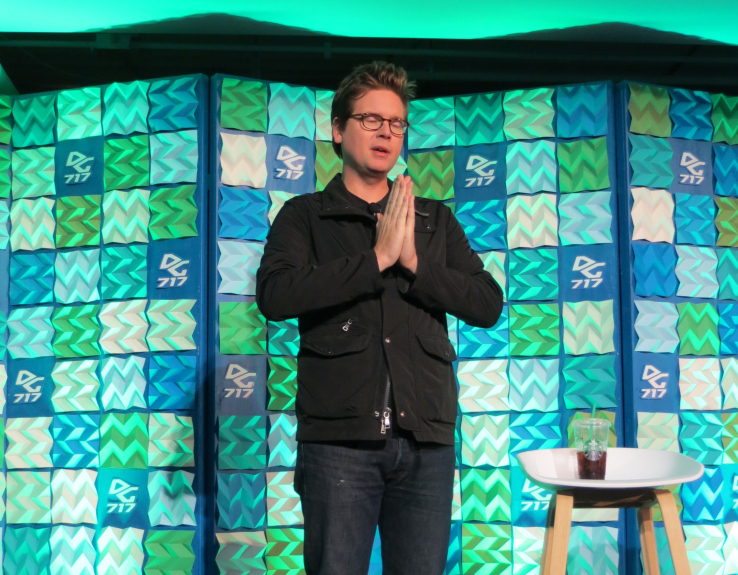

A friend of mine wakes up every morning and reports every single instance of crass, homophobic, and racist behavior she sees on Twitter. She sees it as her duty, an ordering of things in an unordered stream. Her efforts are quixotic at best because when she wakes up and rubs the sleep out of her eyes the firehose still rages.
Why does she have to do this? Because of Twitter’s success and its dedication to a certain post-dot-com style of openness. While for most of us Twitter is either an afterthought or an innocuous pastime, for many, including activists, game designers, and folks who are trying to do good (or bad) in the world it is a platform and a source for input and discussion. And then there’s the Nazis.
I’ve been following the rise of social media for most of a decade and I was angry – but not surprised – when most social media services actively shut down erotic images a few years ago even as they simply accepted all other content without comment. This results in a lot of dross, some news, some violence, and then a little bit of life-changing rhetoric. In short, social media has become the town square we dreamt it to be but it is regularly overwhelmed by hate, fear, and anger. It’s not a fun place nor is the discourse that appears there useful politically, mentally, or socially. Instead of bringing us together it gives us the opportunity to mouth off to John Stamos or post a picture of our cats.
It is obviously in Twitter, YouTube, and Facebook’s best interest to keep the kids from seeing boobs but where does that interest in public comfort stop? At what point does the freedom of social media begin eating its own tail? How responsible is Twitter for the things that appear on Twitter? If we’re measuring from some esoteric vision of absolute freedom (except for boobs) then Twitter and Facebook shouldn’t be policed at all. The invisible hand of human intellect will guide us to a utopian outcome. If we’re measuring from some esoteric vision of a perfect community (except for boobs) then Twitter and Facebook should ratchet up the ban hammer immediately. Unfortunately we have to live in a very real middle ground.
Twitter, we hope, is trying. But they need to try harder. I point to this exchange on Twitter. Mike Monteiro, an SF-based designer, who proposed speaking with Biz Stone about banning Trump.
You see what he’s saying. “Let’s talk. Let’s figure this out. But our sense of kind discourse has been abused to the point of breakage. Our sense of argument is now honed by a rough stone. We now react viscerally instead of consciously. So instead of saying “I’d encourage that sort of dialogue” or simply shutting up, Stone replied:
It’s the old “Don’t blame us, we just work here” routine. And trust me I know how Stone feels. The free-speech journalist in me says this is a bad idea – Trumps’s message will find a way out and, thanks to what amounts as a media freeze-out, Twitter is his only outlet. But the guy who doesn’t want to die in a nuclear inferno says, “Yeah, let’s maybe give him his own website and let him try to get his traffic numbers up like all the rest of us.”
Ultimately this is about responsibility. But I feel that folks like Biz and Zuck and Systrom owe it to humanity to police their worlds in the same way Disney polices Disney World: all are welcome, but the instant you get out of line you’re toast. What this line is abundantly clear at Disney World – don’t punch Donald – but it is not so clear online. Biz is defensive here for good reason: he’s painted into a corner. He can’t ban Trump lest his business goes under and by refusing to ban Trump he must also allow other forms of worse speech to find root on the service. There are other outlets, to be sure, but nothing has quite the gravitas of a Tweet.
If work is being done why does my friend still have to wake up, day after day, and call out hatred. She doesn’t have to slap down racists in the Walgreens so what does she have to do it on Twitter? Don’t give me the old “there’s too much data” argument. There are machines that scour that data for advertising opportunities. Those same spiders should sink their teeth into bad actors as well.
Ultimately social media has to be a free-for-all or it’s a walled garden. It was dreamt as a happy place where we could all share our thoughts but has instead turned into scrimmage where a certain subset of the population gangs up on an other subset and where a ban-first-ask-questions-later policy would make things hard to monetize. Ultimately, these first iterations of social media will go away, to be replaced by a more personal and usable system of conversation but until then, can we at least get the Nazis off Twitter?

